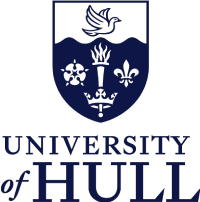About the Project
To celebrate the University's research successes, the University of Hull is offering a full-time UK/EU/International PhD Scholarship for candidates applying for each of the following projects as part of a new research cluster.
Studentships will start on 16th September 2019
Summary of Cluster
Falling through the net: examining the causes of child trafficking and exploitation.
The Wilberforce Institute is a post-graduate institute dedicated to improving the conditions of people around the world in situations of slavery and exploitation through collaborative, multi-disciplinary, investigative research that examines the present though the prism of the past. These scholarships investigating child trafficking and exploitation represent a new direction for the Institute following the appointment of new staff members and a broadening of our collaborative research agenda. The scholarships will form the basis of a new research cluster that will examine the problem of contemporary cross-border child trafficking through a wide historical lens. The aim is not just to undertake ground-breaking research, but to inform policy and improve outcomes for those in conditions of exploitation. In much of the existing research on trafficking, children’s experiences are integrated into, and explained by reference to, those of women. Yet children have a unique set of rights, agreed by international convention, that need to be addressed separately. The cluster will examine how and why children trafficked across borders fall through the web of protections that we expect the family, the voluntary sector, and ultimately the state, to provide. The Institute places high importance on the contribution of its PhD students to the research agenda of the Institute. Our students meet regularly for the exchange and discussion of ideas and successful applicants will be expected to play a central role in the intellectual and administrative development of the cluster, as well as its outputs.
For further information contact the cluster lead, Dr Judith Spicksley [Email Address Removed]
Summary of PhD Project
Home children, 1920s-1960s: a study of the exploitation of British children subject to forced emigration
This project seeks to investigate the lives of British children who were forced to emigrate to Canada and Australia in the early twentieth century as part of attempts by the state and NGOs to socially cleanse urban Britain. They were ‘adopted’ by colonial families, ostensibly to improve their future opportunities. Recent interest in the plight of these ‘home children’, some of whom were severely exploited as a result of their trafficking, has sparked a good deal of research into the effects of that emigration on the psychological and emotional well-being of the children involved. But as yet there has been no academic analysis of the conditions that permitted and even enabled the children’s ‘new’ families to exploit the vulnerable minors that were in their care. Unlike ‘white slave’ children, there was no recognition that these children would need international protection, and there were no international conventions to protect their interests. The theme here is one of economic exploitation and the focus is on the failure of both the new state and the British charities involved in the relocation to prevent the exploitation of children within their adoptive families.
A knowledge of early twentieth century European history and migration is desirable but not essential. This scholar will be supervised by historians and migration scholars in the Institute. We welcome applicants with a background in economic and social history, twentieth century migration, or equivalent experience in a related subject.
Essential criteria
Applicants should have a 1st class undergraduate degree or Masters level research qualification in a relevant discipline. A 2:1 may be considered, if combined with relevant experience.
To apply for these Scholarships please click on link below:
https://www.hull.ac.uk/choose-hull/study-at-hull/admissions/postgraduate/how-to-apply.aspx
Full-time UK/EU and International PhD Scholarships will include tuition fees and maintenance (£14,777 in 2018/19) for three years, depending on satisfactory progress.
PhD students at the University of Hull follow modules for research and transferable skills development and gain a Masters level Certificate, or Diploma, in Research Training, in addition to their research degree.
Interviews will be held between 7th and 27th February 2019
Successful applicants will be informed of the award as soon as possible and by 15th March 2019 at the latest.

 Continue with Facebook
Continue with Facebook

